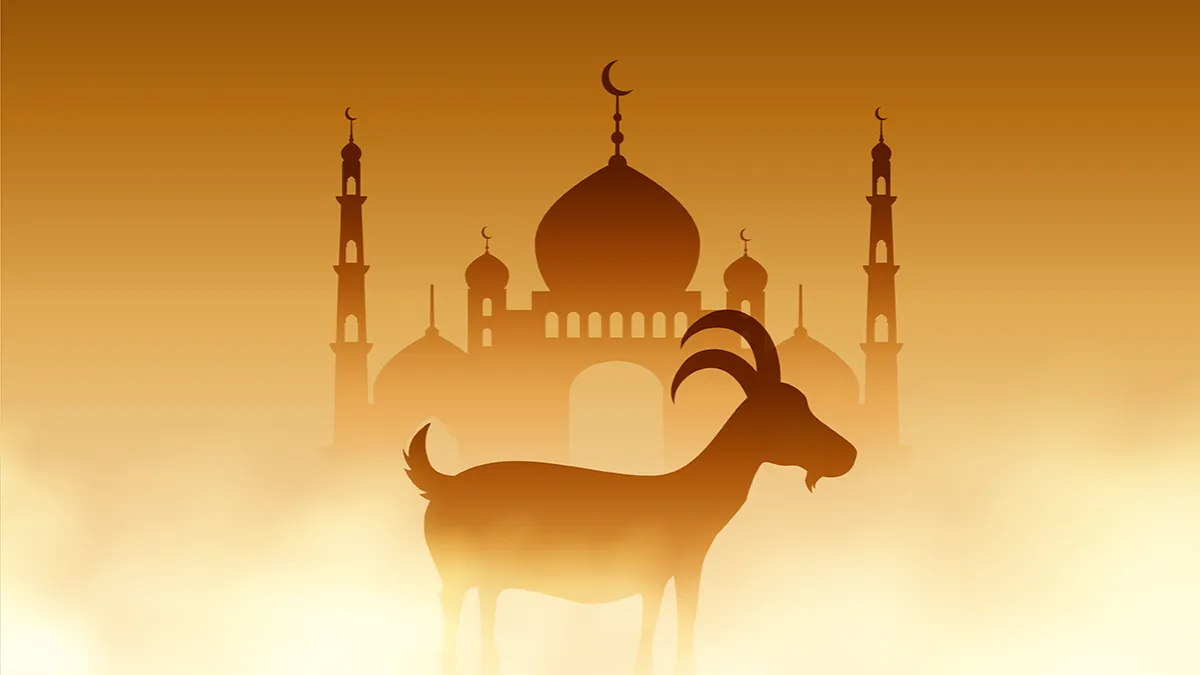
India celebrated Eid-al-Adha, also known as 'Bakri Eid' on June 29, which is one of the holiest days in the Islamic calendar, second only to Eid-al-Fitr. The event, also known as 'Eid Qurban,' 'Qurban Bayrami,' or the 'event Of Sacrifice,' is observed by Muslims all over the world on the 10th day of Dhul Hijjah, or the twelfth month of the Islamic calendar.
The festival commemorates Prophet Ibrahim's absolute devotion to Allah (God). To satisfy the Almighty, he had recurrent dreams of slaying his son Ishmael. When his son agreed, he went out to carry out the act. God was delighted with his selfless dedication and dispatched the archangel Jibreel (Gabriel) to assist. Ibrahim was given a sheep by Gabriel, which was sacrificed in exchange of Ishmael. On this holy day, livestock are also sacrificed.
Pious Muslims offer a goat, sheep, or camel as a sacrifice. This deed represents Prophet Ibrahim's absolute devotion to Allah. This event is known as 'Bakri Eid' because most South Asians butcher a goat. Bakri means goat in Urdu. The flesh from the animal is then divided into three sections: one for family, one for relatives and friends, and one for the poor.
After the sun has risen, people will congregate at the mosque to offer namaz or prayer. After the morning prayers, the sacrifice is carried out. The Eid prayer is divided into two Rakats (Units), during which the Takbeer, 'Allah-hu-Akbar,' is repeated seven times.
Muslims have grand celebrations for their families and friends, exchanging presents and embracing each other saying "Eid Mubarak." On this occasion, wonderful foods like mutton or beef biriyani and kebabs are cooked. People also change their outfits.
